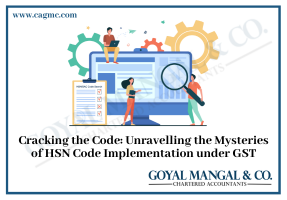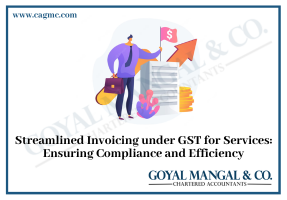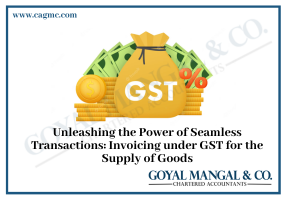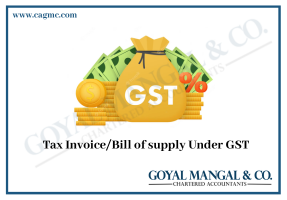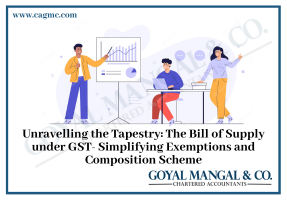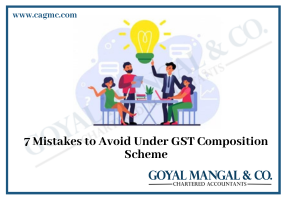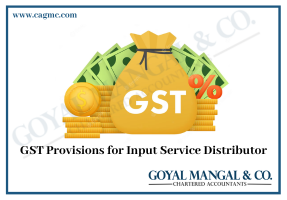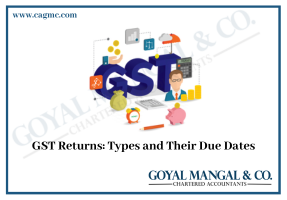In the complex area of Goods and Services Tax (GST) in India, HSN (Harmonized System of Nomenclature) codes holds the key to proper classification and taxation of goods and services. However, understanding and implicating HSN codes can often be a challenging task for businesses. In this article, we aim to simplify the process and provide…
Navigating the complexities of invoicing is a vital aspect for business operating under Goods and Services Tax (GST) system in India. In this article, we will explore the world of invoicing under GST for services. Discover the key guidelines and requirements that businesses need to adhere to when issuing e-invoice under GST for services. From…
In the dynamic realm of commerce, the Goods and Services Tax (GST) has revolutionized the way businesses operate in India. With its implementation, the process of invoicing for the supply of goods has undergone significant changes, introducing a streamlined and transparent system. In this article, we delve into the essentials of invoicing under GST for…
In the world of business transactions and financial operations, maintaining accuracy and ensuring compliance are vital for smooth operations and healthy financial management. Debit notes, credit notes, and how to revise a GST invoice are essential tools that makes businesses to rectify errors, make adjustments, and maintain transparency within the Goods and Services Tax (GST)…
In the realm of Goods and Services Tax (GST), businesses are required to issue specific documents for their transactions to comply with the tax regulations. Tax invoices and bills of supply play a crucial role in the Goods and Services Tax (GST) regime. They are important documents that facilitate the seamless flow of goods and…
In the intricate web of tax regulations, one document stands apart as a beacon of simplicity and clarity. That is the Bill of Supply under the Goods and Services Tax (GST) system. While tax invoices take centre stage for taxable supplies, the bill of supply gracefully navigates the realm of exemptions and the composition scheme….
The advent of Goods and Services Tax (GST) has brought about a monumental shift in India’s retail landscape, fostering a new era of efficiency and growth. This comprehensive tax reform has not only simplified the tax structure but has also unleashed a wave of benefits for the retail sector. From streamlining operations to enhancing profitability,…
The Goods and Services Tax (GST) Composition Scheme is a boon for small businesses, offering them a simplified tax structure and reduced compliance burdens. By opting for the scheme, businesses can avail themselves of lower tax rates and streamlined processes. However, despite its advantages, there are certain pitfalls that businesses must avoid to ensure smooth…
Under the Goods and Services Tax (GST) regime in India, businesses often have multiple branches or units that operate independently but are part of the same organization. Managing input tax credit (ITC) for these branches and units can be complex and time-consuming. However, the concept of an Input Service Distributor (ISD) comes to the rescue…
As per the GST regime, businesses are required to file periodic returns to report their sales, tax liabilities and purchases. Understanding the various kinds of GST returns and their respective due dates is essential for businesses to ensure timely. In this article, we will explore the various types of GST returns and their due dates….
